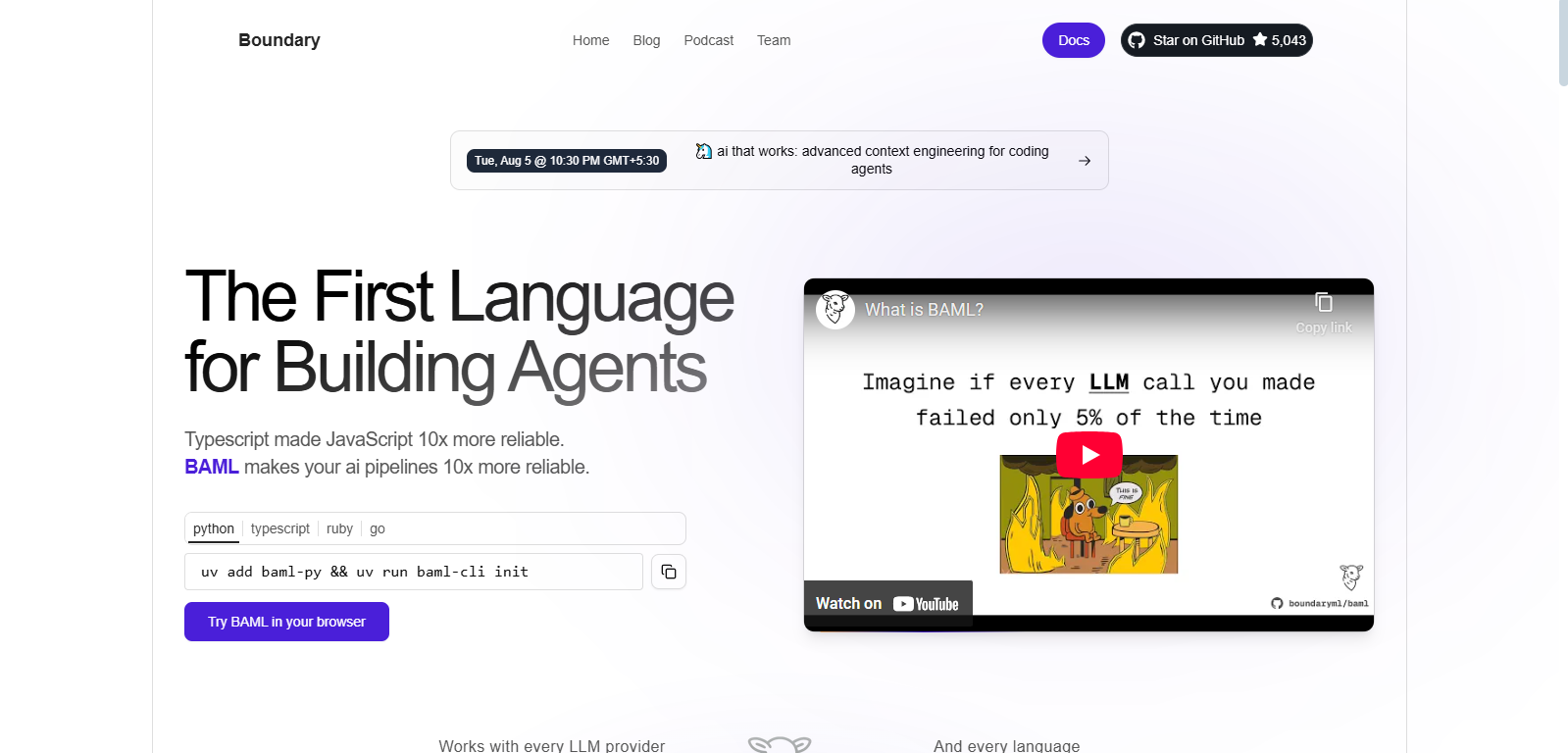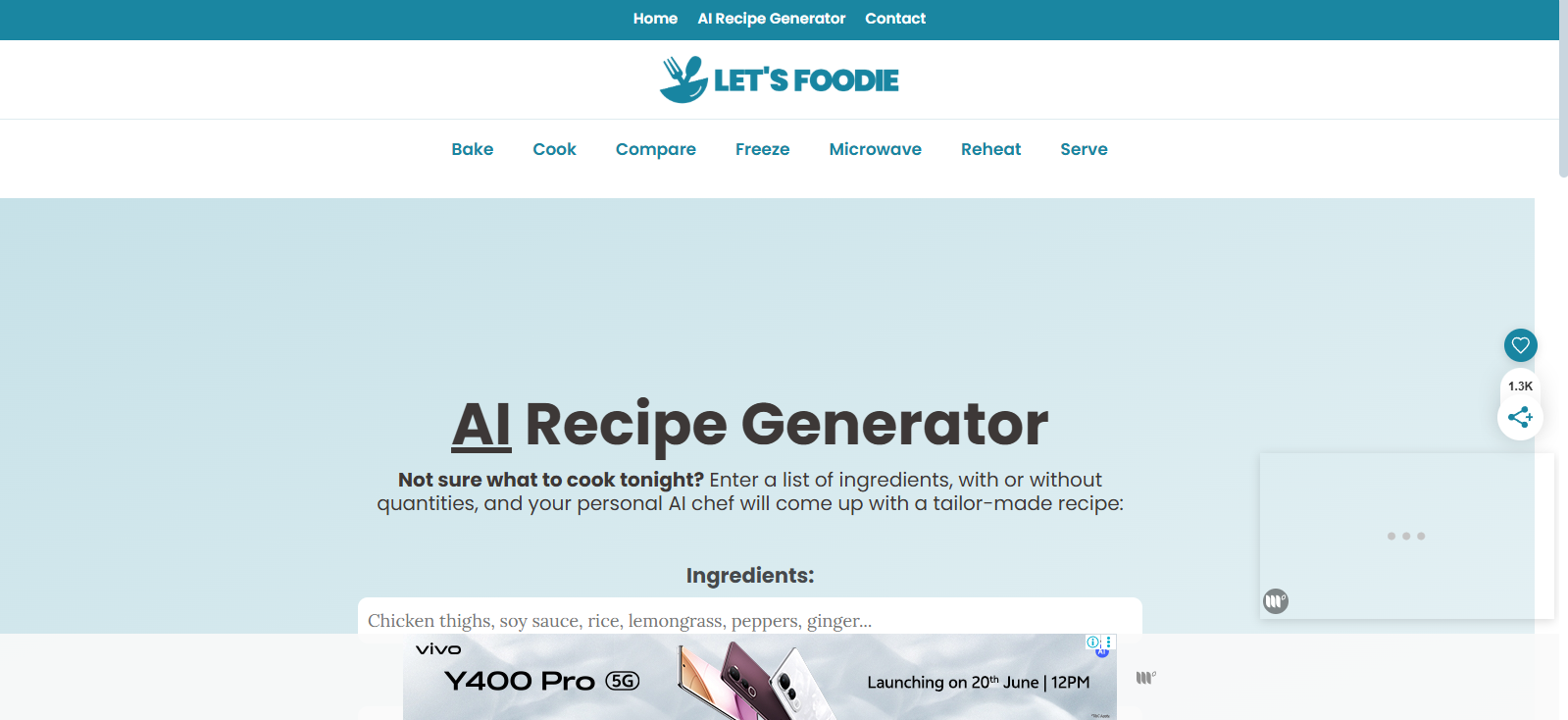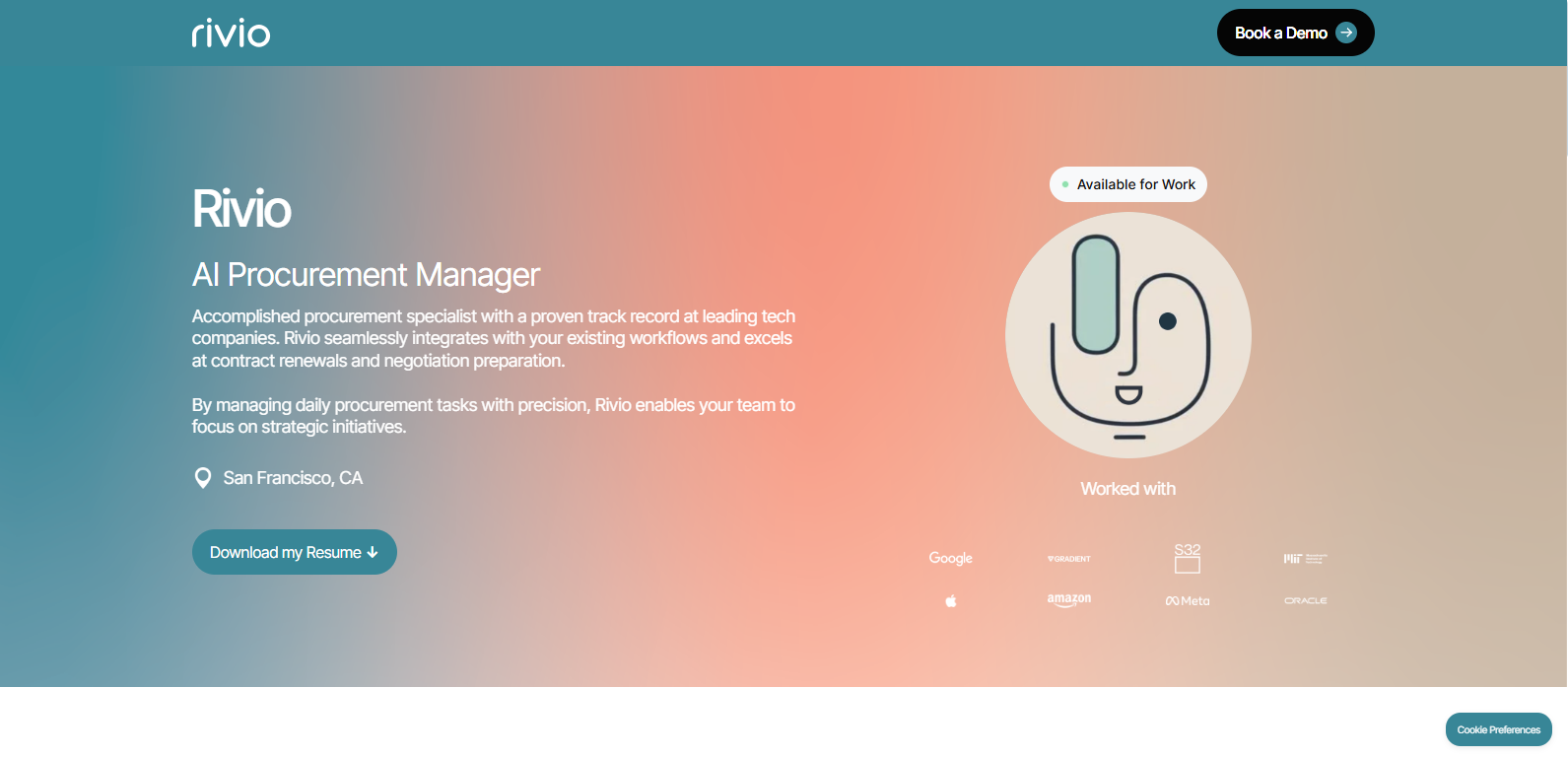Overall Value
BAML isn’t another LLM playground—it’s a developer-first framework built for scale. Think of it as infrastructure as code, but for AI applications. With a simple yet expressive DSL, BAML lets you define logic, compose LLM calls, run tests, monitor outputs, and ship reliable, reproducible AI-powered apps with full observability.
BAML Product Review
Key Features
- Domain-Specific Language (DSL)
Write structured app logic using a simple YAML-like language that’s expressive, testable, and easy to version. - Multi-Model Composition
Seamlessly connect OpenAI, Anthropic, Cohere, and local models into unified chains with branching logic and fallback support. - Built-in Evaluation System
Test your chains using custom test cases and metrics like latency, cost, and correctness, built right into the workflow. - Version Control Friendly
BAML is designed for Git—track changes, collaborate across teams, and deploy confidently. - Production-Ready Execution
Run workflows locally, in CI/CD pipelines, or deploy at scale with cloud-native flexibility. - Monitoring & Logging
Debug every prompt call, view outputs, track costs, and measure performance—all in one place.
Use Cases
- Engineers deploying complex LLM workflows in production
- AI teams maintaining chains with version control & observability
- Startups building intelligent assistants, search tools, or RAG systems
- ML researchers testing and comparing different prompt strategies
- Backend teams integrating AI logic into existing systems
Technical Specs
- DSL parser with static type checking
- Supports any API-based model: OpenAI, Anthropic, HuggingFace, and more
- Works in local dev environments, CI/CD, or cloud servers
- Python backend integration
- Built-in test runners and debug modes
- YAML-like syntax for fast writing and clear logic
Tired of chasing logs and debugging broken prompt chains?
FAQs
If you’re comfortable with YAML or Python, you’ll pick it up quickly. BAML’s syntax is developer-friendly and well-documented.
Yes! BAML supports any model with an API endpoint—whether it’s OpenAI, open-source models, or custom internal deployments.
LangChain is a toolkit. BAML is a structured framework with built-in testing, observability, and cleaner production workflows.
Absolutely. Everything in BAML is versionable, testable, and made to fit right into your Git and CI/CD pipeline.
Conclusion
BAML bridges the gap between AI experimentation and scalable production. From structured chaining to real-time testing and deployment, it gives engineers the tools they need to build robust AI-powered applications—with clarity, control, and confidence.
Ready to stop prototyping and start shipping AI apps that scale?
👉 Explore BAML now









